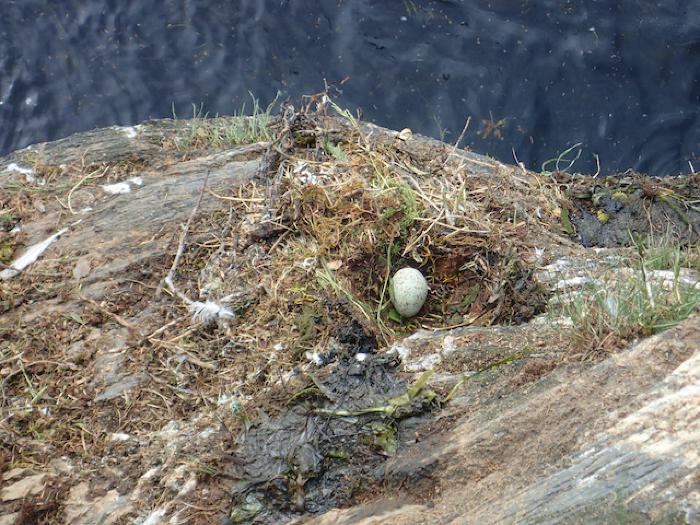Nest — Negtaq

Along the coast of Kodiak, sea birds nest in a variety of habitats. From the beach to rocky cliff faces, each species has a preferred habitat. Gulls like flat ground. Murres perch on ledges. Puffins burrow or rest in crevices. Guillemots and oystercatchers prefer piles of rock rubble. These predictable patterns help Alutiiq hunters find and harvest birds. Before the availability of shotguns, one way to capture sea birds was to net them at nesting sites. A hunter lowered a net over a cliff face attached to a long wooden pole. When the startled birds flew into the net, the hunter pulled a string to form a bag around the flapping animals.
Alutiiq speakers have two different words for nest, negtaq and ungluq. Ungluq is also a term for house used by people who practice the southern style of speaking. Engluq, another term for house, comes from a root word meaning barrier or boundary. These linguistic relationships point to houses and nests as places of protection.
An Alutiiq legend also suggests an association between houses, nests, and protection. Once, there was an old, lame man who lived far from other people. One day he found a ptarmigan by his sod house. He treated the ptarmigan kindly and built her a nest to sleep in. The next day, the man went off hunting. When he returned, his house was warm and clean, and there was a meal and a newly made pair of boots waiting for him. This happened the second day too. In the evenings, the man treated the ptarmigan kindly, feeding and playing games with her. Eventually, the bird removed her skin to reveal a beautiful woman and she agreed to become the man’s wife. By providing the bird a safe home, the man created a happy life for himself.
